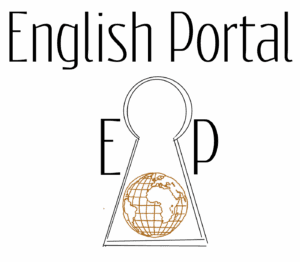This week’s post in our English blog focuses on different ways to say hello in English. This should be pretty basic because one of the first things we learn in English is to say ‘hello’. This ought to be simple, right? Hmm. It’s not complicated. It’s just a little strange sometimes because there are actually many (very different) ways to say “hello”.
Let’s have a look!
Ok, yes. The first and most standard way to say “hello” is just…”Hello”.
And then we have the less formal: hi.
What is “formal”?
https://dictionary.cambridge.org/us/dictionary/learner-english/formal
How about “informal”?
https://dictionary.cambridge.org/us/dictionary/learner-english/informal
There are variations to “hi”, like:
hiya
(though you might hear other versions of this)
Then there is also:
hey or heyo
or even
hey hey
(this one seems to be popular with kids)
You can see what’s happening here. Native English speakers- especially younger generations- will take simple ways to communicate and “spice them up” (make them more interesting).
What else do we have?
We have “yo”.
This is also very informal.
Then we have one that is a little funny….
”howdy”.
What is “howdy”? Originally, it was a form of “hello” that became popular in rural areas a long time ago. Most people would think of cowboys or places like Texas when they think of “howdy”. However, now you might hear this greeting just about anywhere, either as a joke, or even as a now “normalized” greeting.
We also have greetings that are connected to time. These are not new, but a lot of times they become shorter, so…
Good Morning becomes:
Morning!
Or
Mornin!
Good Afternoon:
Afternoon!
Good Evening:
Evening!
Or
Evenin’
So far, these forms of greeting other people are pretty simple. Now we should look at another way to say “hello”: by using questions. I say “using” questions instead of “asking” questions, because with these phrases, we’re not really always looking for information. Here’s an example:
How are you?
Or less formally: “How are ya?”
Yes: “How are you?”
This looks like a simple English question. It has a question word (how). It has a subject (you). It has a verb (are). Easy!
This question can be perplexing* for international speakers of English.
* https://dictionary.cambridge.org/us/dictionary/learner-english/perplexing
This question isn’t really a normal question. It’s just a way to say “hi”.
Here are a few possible situations:
Batman: How are you?
Joker: I’m good.
(end of greeting)
Batman: How are you?
Joker: Not bad.
(end of greeting)
Batman: How are you?
Joker: Fine, thanks!
(end of greeting)
Or how about this situation. Imagine that Batman and Joker work in the same office. They are walking down the hallway, going past each other like this:
————————————————-
Batman –>
<– Joker
————————————————-
Here’s the conversation:
Batman: How are you?
Joker (nods his head and smiles)
They both keep walking. End of conversation.
It may seem strange that someone (in this case, Batman) would ask a question and then just keep walking without waiting for a response, but this is not that unusual.
Now let’s look at the really strange one: What’s up?
For most people there is only one answer to this question, and it looks negative but actually isn’t.
Batman: What’s up?
Joker: Not much.
That’s it. There are, of course, variations, such as: “Nothing” and “Not a lot”.
There are also variations on the form of this so-called question:
What up?
And even:
Sup?
You read that correctly: sup.
“Sup” means “What’s up?”
“What’s up? means “How are you”
“How are you?” means “Hello”
So…
“Sup” means “hello”.
Welcome to English!

